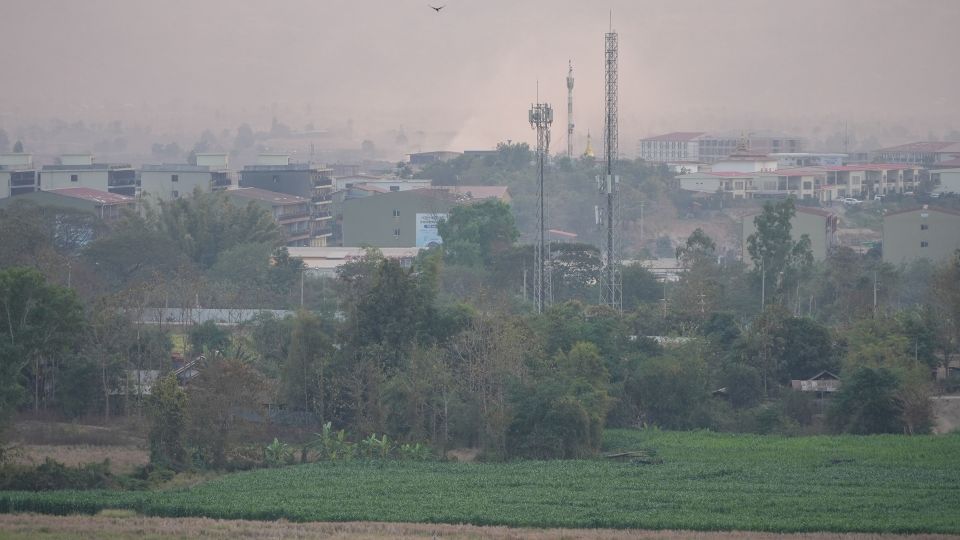A Chinese court recently sentenced 11 people to death for their key roles in a massive family-operated crime syndicate worth billions, notorious for online scams and gambling operations based in Myanmar’s remote border area. These factions were also linked to the tragic deaths of workers seeking to escape their grip.
The Wenzhou Intermediate People’s Court in Zhejiang Province delivered the verdict, targeting members of the infamous Ming crime family on a Monday.
The Ming family is part of the so-called “four families” of northern Myanmar, which function like a mafia, running countless operations tied to internet fraud, drugs, and prostitution. Many within this group also occupy influential positions in local government and military factions aligned with Myanmar’s ruling authority.
Headed by Ming Xuechang, this crime family had long-term connections with a notorious site known as Crouching Tiger Villa, located in Kokang, an autonomous area bordering China. According to reports from Chinese state media, the group employed around 10,000 individuals at one point to facilitate various illegal activities.
Kokang’s capital, Laukkaing, became the epicenter of a billion-dollar scam operation, with forced laborers deceiving victims through highly professional online cons. The money flowing from these illicit ventures turned this impoverished town into a thriving gambling metropolis.
Despite years of warnings and increasing international media coverage about the operations on its southwestern border, the Chinese government only began an intensive crackdown in 2023.
In November of that year, China started issuing arrest warrants for members of the Ming family, accusing them of serious crimes such as fraud and murder. They even offered rewards ranging from $14,000 to $70,000 for information leading to their capture.
Reports indicated that Ming Xuechang, once a state parliament member in Myanmar, took his own life while detained. His family, including his son Ming Guoping, a leader in the pro-junta Kokang Border Guard Force, his daughter Ming Julan, and granddaughter Ming Zhenzhen, were all arrested subsequently.
The court stated that the gang’s operations resulted in the deaths of 10 individuals who either failed to comply with the group’s directives or attempted to flee.
One shocking incident in October 2023 reported four victims were shot either during their transit from a scam compound or in attempts to avoid a police raid.
Aside from the death sentences, other associates of the family received suspended death sentences amidst varying terms of imprisonment ranging from five to 24 years.
Since 2015, the Ming family had dell maintained its grip over Kokang, enhancing their reach by establishing multiple bases and recruiting financial supporters and armed protectors to fortify their network across fraud, casinos, drugs, and organized vice.

Annually, Southeast Asian crime groups inflict losses upwards of $43 billion due to scams, according to the United States Institute of Peace.
In Myanmar, widespread corruption and lawlessness in border regions provided protection to these scam compounds. However, ongoing civil strife has allowed many criminal groups to flourish over the years.
The crackdown on the Ming family followed a coordinated offensive against the local military by insurgents in October 2023, emphasizing the urgency of dismantling massive fraud operations as part of their agenda — and a campaign that is widely believed to have had China’s support.
Eventually, these efforts led to forcing military forces out from Laukkaing.
Chinese authorities reported sending back over 53,000 individuals, deemed “suspects” along with trafficked victims, from the scam bases in northern Myanmar.
Earlier in the year, there had been also significant interventions addressing scam operations further south in Myanmar, triggered by demands from Chinese and Thai authorities.
However, experts have warned that despite these crackdowns, criminal networks are swiftly adapting, making use of emerging technology and cryptocurrency to streamline their illicit activities.
This information was compiled with contributions by CNN’s Kloe Zheng.
To stay updated with more news from CNN, feel free to register at CNN.com





















